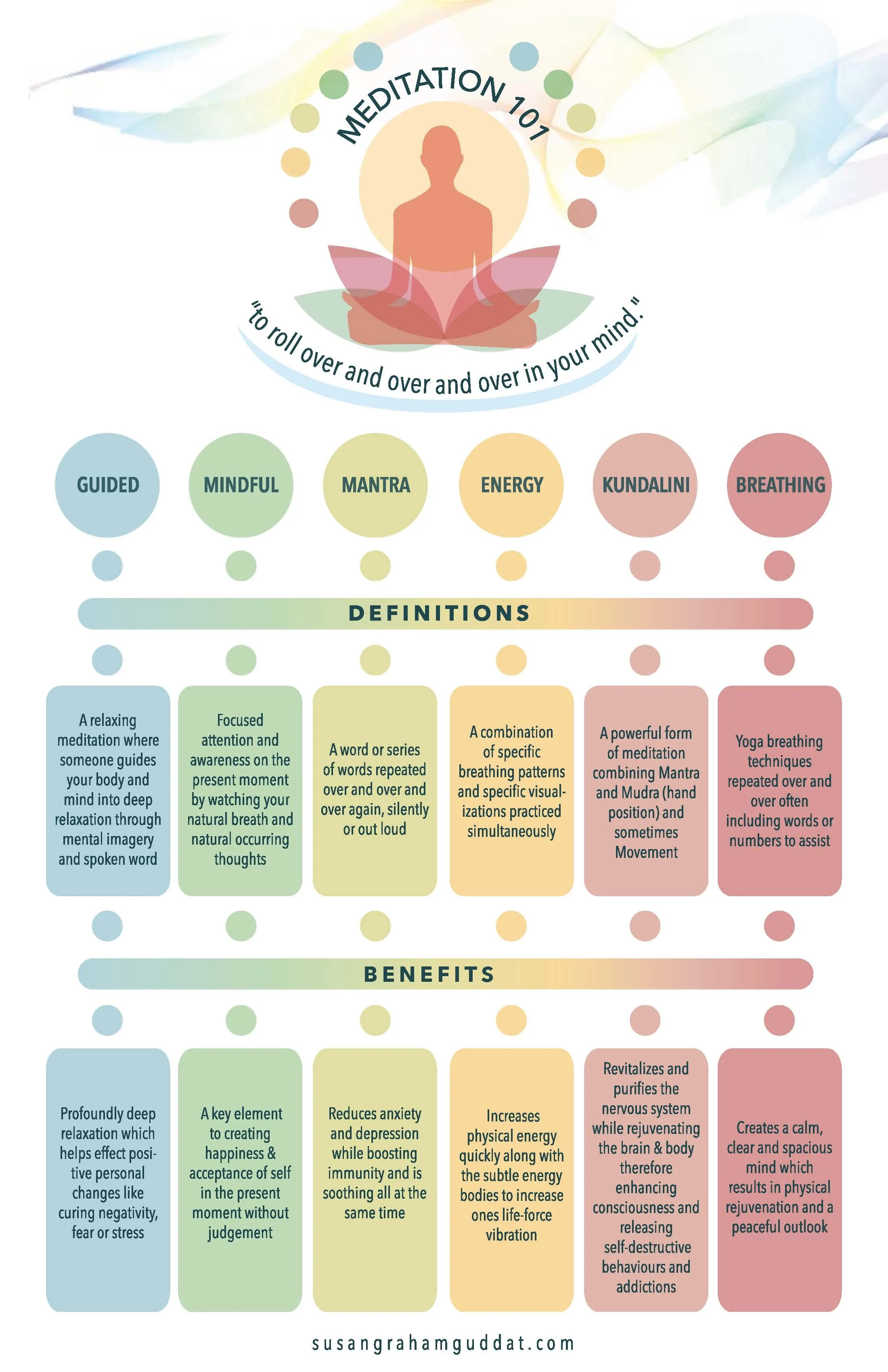Recharge Your Well-being: The Transformative Power of Meditation
In the whirlwind of everyday life, from the morning rush of getting the kids ready for school to the myriad responsibilities that await, finding a natural and effective way to refill our energy becomes crucial. Enter meditation—a practice not just for the overwhelmed but a proven tool when used regularly for enhanced well-being and reduced stress and anxiety. Still not convinced? Check out just some of the proven physical, mental, and emotional benefits of meditation:
Understanding Meditation
Waiting until life is chaotic or emotions are low is a common misstep. Meditation, at its most effective, is a regular practice that permeates your life, mood, and anxiety positively. It's not about concentration but de-concentration—an invitation to enter a state of mind with no thoughts, a truly relaxing prospect.
Understanding Meditation
Waiting until life is chaotic or emotions are low is a common misstep. Meditation, at its most effective, is a regular practice that permeates your life, mood, and anxiety positively. It's not about concentration but de-concentration—an invitation to enter a state of mind with no thoughts, a truly relaxing prospect.
Overall Benefits of Meditation
The benefits extend across the physical, mental, and spiritual realms. Regular meditation has a profound impact, bringing increased joy, peace, and enthusiasm into your daily existence.
Proven Physical, Mental, and Emotional Benefits of Meditation Include:
Lowering high blood pressure
Reducing anxiety attacks by lowering blood lactate levels
Alleviating tension-related pain like headaches, ulcers, insomnia, and joint problems
Boosting serotonin production for improved mood and behavior
Strengthening the immune system
Increasing energy levels
Decreasing anxiety while improving emotional stability
Boosting creativity and overall happiness
Developing intuition and gaining clarity of mind
Enhancing mental agility and relaxation
Improving memory and retention
Making Meditation a Daily Ritual
To ensure you reap the benefits, consistency is key. Dedicate around 20 minutes daily, and once meditation becomes ingrained in your routine, it can become the highlight of your day.
Tips for Effective Meditation:
Find a quiet, low-lit, clean space, especially if you're a beginner.
As you progress, you'll be able to meditate anywhere.
If thoughts intrude during meditation, observe them without resistance
Exploring Different Meditation Techniques
Meditation is a broad term for many different ways to be in a relaxed state of being. Many types of meditation and relaxation techniques have meditation components. Below are a few common practices. I encourage you to test out a few and find the ones that work best for you.
Guided meditation. Sometimes called guided imagery or visualization, with this method of meditation you form mental images of places or situations you find relaxing.
Mantra meditation. In this type of meditation, you silently repeat a calming word, thought or phrase to prevent distracting thoughts.
Mindfulness meditation. This type of meditation is based on being mindful, or having an increased awareness and acceptance of living in the present moment.In mindfulness meditation, you broaden your conscious awareness. You focus on what you experience during meditation, such as the flow of your breath. You can observe your thoughts and emotions, but let them pass without judgment.
Tai chi. This is a form of gentle Chinese martial arts. In tai chi (TIE-CHEE), you perform a self-paced series of postures or movements in a slow, graceful manner while practicing deep breathing.
Transcendental Meditation. Transcendental Meditation is a simple, natural technique. In Transcendental Meditation, you silently repeat a personally assigned mantra, such as a word, sound or phrase, in a specific way.
Yoga. You perform a series of postures and controlled breathing exercises to promote a more flexible body and a calm mind. As you move through poses that require balance and concentration, you're encouraged to focus less on your busy day and more on the moment.




